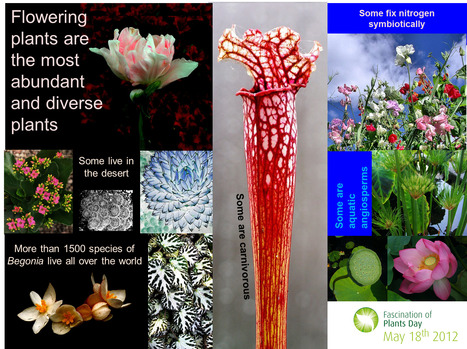We're hitting the road! Come see us to say hi or participate in a workshop
27 - 29 March, London, SEB Education Symposium
Workshop "Making the horse thirsty"
18 - 20 April, Norwich, UK Plant Science 2012
"Teaching Tools in Plant Biology: Living aids for teaching and learning”
18 May, Glasgow, Fascination of Plants Day
"Plants Life People"
3 - 7 July, Vienna, ICAR (Arabidopsis meeting)
Workshop (tentative), "Teaching Workshop for Post Docs and Graduate Students"
20 - 24 July, Austin Texas, ASPB Plant Biology 2012
Workshop "How to be a great teacher: A hands-on workshop"
29 July - 3 August, Freiburg Germany, Plant Biology Congress (FESPB and EPSO)
Teaching Workshop for early career scientists, August 2, 16.30 - 18.30 hrs
26 - 31 October, Jeju Korea, International Plant Molecular Biology Congress
TBD

 Your new post is loading...
Your new post is loading...
 Your new post is loading...
Your new post is loading...


